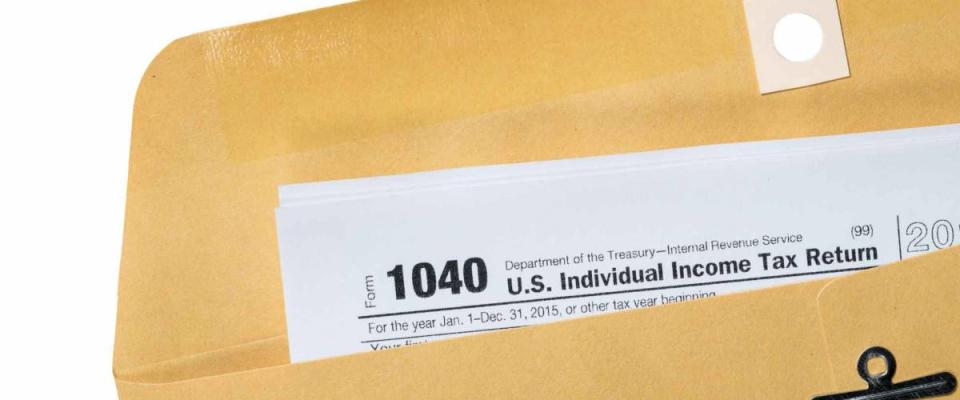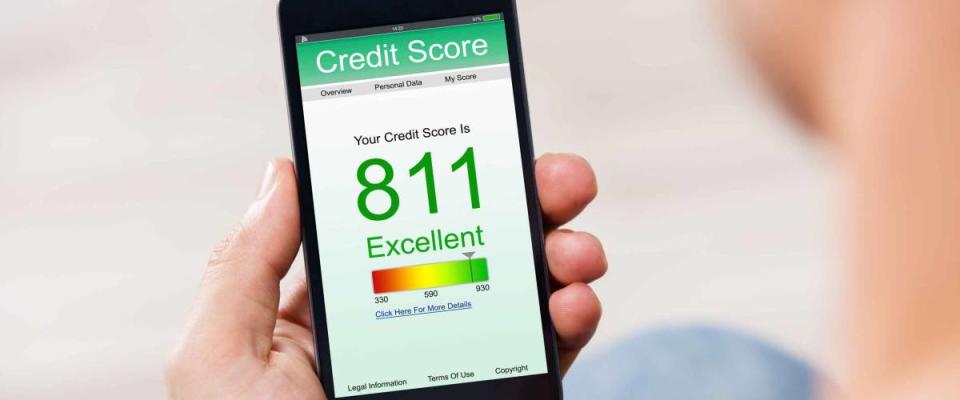You're self-employed? You can still get a super-low mortgage rate

If you work for yourself and are thinking about buying a home or refinancing, record-low mortgage rates aren’t out of reach.
But first, you have to qualify for the mortgage. As the unemployment rate stays high, lenders are trying to predict whether potential borrowers will be able to make payments. They’ll check — and then double-check — that your income hasn’t been impacted by the pandemic.
"Self-employed people have to jump through hoops like never before,” says Nicole Rueth, producing branch manager of Fairway Independent Mortgage Corp. in Englewood, Colorado. “The paper trail is much more extensive than it’s ever been."
As 30-year mortgage rates continue to hover around a once-unbelievable 3%, here’s what self-employed Americans can do to prepare for a mortgage application and score a rock-bottom rate.
Get your paperwork together

You'll need to provide tax returns and other income documentation.
"Income verification" might sound snooze-worthy, but it’s a hot topic right now with the mortgage giants that back most of America’s home loans. Fannie Mae and Freddie Mac recently released new guidelines for independent contractors and self-employed borrowers.
As a result, lenders may ask for these items when you apply for a mortgage:
A profit-and-loss statement, or "P&L," that reports business revenue, net income, expenses and debts. In most cases, a certified public accountant will need to sign and audit the P&L.
If the statement isn’t audited, you may be able to provide an unaudited P&L by supplying business bank account statements from the previous two months.
"We’re going to look at the profit-and-loss statement, review it, and match it up with what the borrower filed on their tax return," says Paul Wendland, mortgage banker at CenterState Bank Mortgage. When looking through the monthly bank statements, "we need to see if the cash flow is coming in consistently,” Wendland says.
Self-employed borrowers also will need to provide these standard income docs:
Business tax returns from the most recent two years.
IRS Form 4506-T, which requests a transcript of your tax return so the lender can access your tax records.
Asset account statements, like from retirement or investment accounts.
A list of business debts and expenses.
Canceled checks for rent or mortgage.
Paperwork on any additional income, such as Social Security or disability payments.
Verify your employment

You'll need to ask clients to help verify your employment.
When you work for someone else, the lender can ask your employer to confirm your history at the company, your pay and the likelihood it will continue. But a self-employed person has to take different steps to prove employment.
The lender may start by asking for client contracts or letters from your current clients, tax adviser, insurer or professional business organization.
An example: "If you have a writing business and you’re writing for a particular organization, (the lender) will ask for copies of your contracts," Wendland says. "That’s to make sure you’re still out there doing business."
To qualify for a mortgage, you'll need to show that you’ve been in business for two years with stable or increasing income.
If you started your business less than two years ago, you might still qualify. The lender will verify you’ve been self-employed for at least 12 months and worked in the same industry for a few years before that. This helps prove your income is stable.
Bolster your application to get a great mortgage rate

It helps to have a fantastic credit score.
Your income and employment verification are essential for your mortgage application. But to be a well-rounded applicant and get a great mortgage rate, you'll also need to:
Check your credit score
In the past few months, "credit score requirements have increased across the board for all borrowers," Wendland says. If you get a free look at your credit score and find that it needs work, you can make yourself a better loan candidate by paying down debt and addressing any errors on your credit reports. As of mid-2020, lenders were approving borrowers with an average score of 750, according to mortgage software firm Ellie Mae. A higher credit score may help you get an ultra-low rate.
Keep your DTI ratio down
Your debt-to-income (DTI) ratio measures how much of your monthly income goes toward your monthly debt payments. Depending on the lender and the type of mortgage, an acceptable DTI is around 43% or less, says the U.S. Consumer Financial Protection Bureau. If you earn $6,000 a month and use $2,800 of that on credit card payments, a car payment and your mortgage, then your DTI is 47%. Paying off debts like credit card balances can help lower your DTI.
Keep cash reserves on hand
Your lender wants to know you’ll be able to cover your mortgage payments even if your income changes from one month to the next. Build up an emergency fund to get you through the slow months. How much you save is up to you, but a good rule of thumb is to keep three to six months’ worth of expenses tucked away.
Make a large down payment
Though you can put down as little as 3% for some mortgages, that means more risk for the lender. A hefty down payment may help you score a low interest rate because the lender takes on less risk. Plus, you’ll avoid having to buy private mortgage insurance.
Use a co-borrower
Can a partner, friend or relative sign for the mortgage, too? If they have a W-2 and enough income to qualify for the loan, then you may be able to sidestep some of the documentation requirements and land a record-low mortgage rate. You'll want to discuss this approach with your lender, who'll include you on the loan but may ignore your income in the underwriting process. Remember that your co-borrower will be on the hook if you can't pay off the loan.

 Yahoo News
Yahoo News 